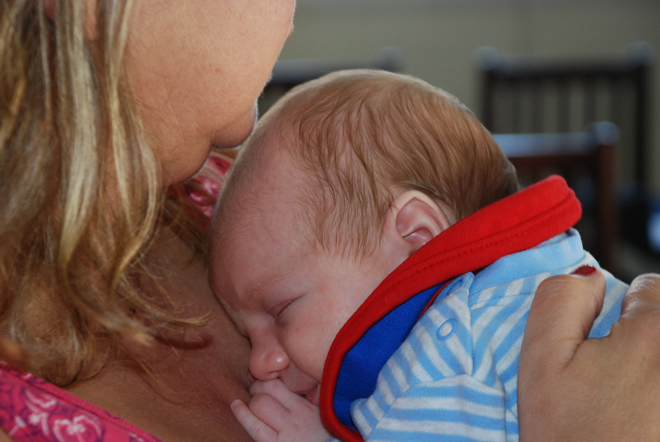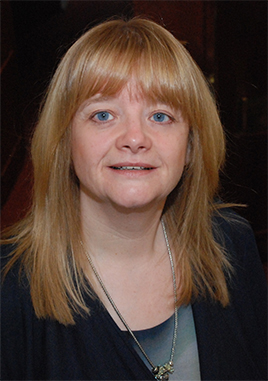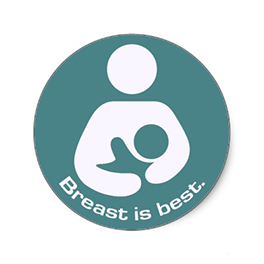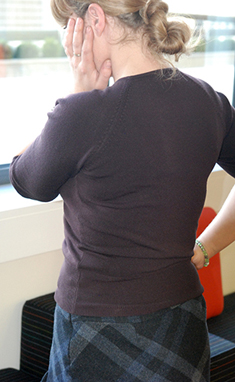The social experience of breastfeeding

Thu, 17 Mar 2016 10:27:00 GMT
Dr Dawn Leeming looks at the importance of sensitive support for women who are establishing breastfeeding
 BREASTFEEDING is often a very positive experience. However, some women may experience difficulty establishing breastfeeding and, if they are not well supported in resolving these difficulties, may be left with feelings of failure, and even a sense of shame. They need more help and support to better address their emotional needs as well as their feeding difficulties. This is a theme developed by a University of Huddersfield lecturer who is taking part in a national seminar series that aims to ensure that academic research into breastfeeding has an impact on the real world of motherhood.
BREASTFEEDING is often a very positive experience. However, some women may experience difficulty establishing breastfeeding and, if they are not well supported in resolving these difficulties, may be left with feelings of failure, and even a sense of shame. They need more help and support to better address their emotional needs as well as their feeding difficulties. This is a theme developed by a University of Huddersfield lecturer who is taking part in a national seminar series that aims to ensure that academic research into breastfeeding has an impact on the real world of motherhood.
Dr Dawn Leeming – a former NHS clinical psychologist – is a Senior Lecturer in the University’s School of Human and Health Sciences. She researches health and well-being, in particular women’s experiences of breastfeeding; the management and repair of shame; and the stigma that can be experienced by users of mental health services.
Women’s experiences of breastfeeding and breastfeeding support and the way these are shaped by social and cultural factors has become a key area of her work. Dr Leeming is one of a team of academics and healthcare experts who are contributing to six seminars funded by the Economic and Social Research Council (ESRC).
The series is entitled Social experiences of breastfeeding: building bridges between research and policy. Dr Leeming has attended all of the seminars and she makes a special contribution to the fourth in the sequence, which recently took place in Cardiff.
 She gave a presentation on her research into the shame that can be experienced by mothers who struggle to breastfeed. She discussed the ways in which healthcare practitioners can help women to overcome these feelings and can promote breastfeeding in a manner that minimises the likelihood of shame.
She gave a presentation on her research into the shame that can be experienced by mothers who struggle to breastfeed. She discussed the ways in which healthcare practitioners can help women to overcome these feelings and can promote breastfeeding in a manner that minimises the likelihood of shame.
“I spoke partly about how – in their interactions with breastfeeding supporters – women who are having difficulties may be trying to resist and avoid feelings of shame, which not only affects their sense of well-being, but also their confidence talking to others about any feeding difficulties and therefore being able to resolve these,” said Dr Leeming, who added that shame was often a component of post-natal depression.
Contradictions in attitudes to breastfeeding
 There are many contradictions in contemporary attitudes to breastfeeding.
There are many contradictions in contemporary attitudes to breastfeeding.
“We have ended up in a situation where women can be shamed for not breastfeeding and not living up to an ideal of motherhood. But if they do breastfeed in public they are shamed for exposing themselves!
“It is partly because we have had such taboos on breastfeeding that women have lost familiarity with breastfeeding practices and we have then had to promote breastfeeding quite strongly, which is bizarre, because it is fundamental to human survival,” said Dr Leeming, who has produced articles, presentations and blogs on the subject. It is intended that the papers given at the current ESRC seminar series will be published in written format.
The breastfeeding seminars feature contributions from specialists in various fields, and Dr Leeming’s own research has been inter-disciplinary. She does not approach the subject as purely a psychological problem.
“Our research included talking to women who struggle to establish breastfeeding and considering the impact this can have on their image of themselves. The worry can lead them to question their status as a mother and a woman,” she said.
“There are various factors that can make breastfeeding difficult, but with help and support, the problems can often be overcome,” added Dr Leeming.
“But the availability of really skilled breastfeeding support is not always there,” she said. “It can be provided by a range of practitioners including lactation consultants, midwives, health visitors, breastfeeding counsellors and peer supporters and there is growing recognition that confidence and how women feel in themselves are an important element.”







